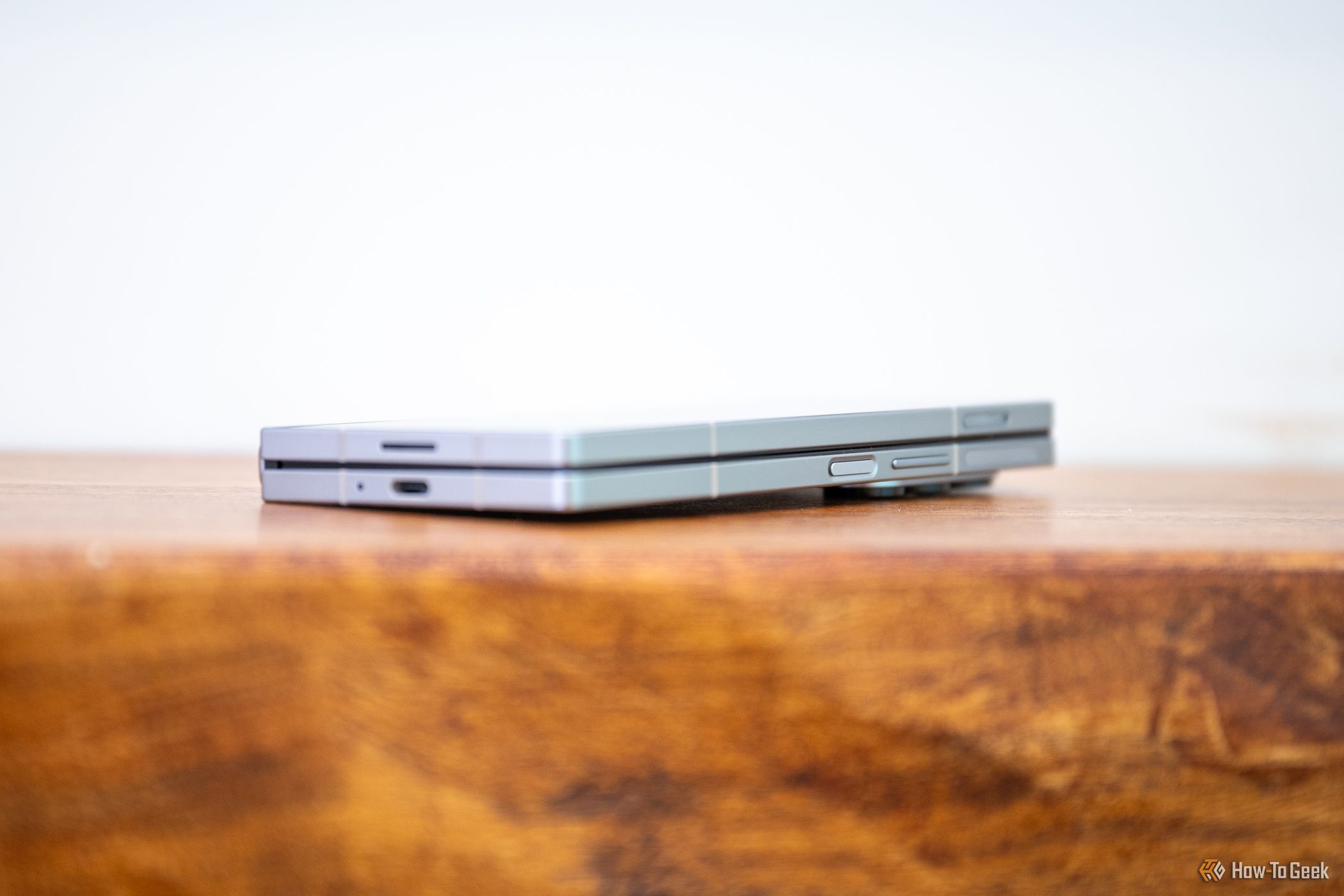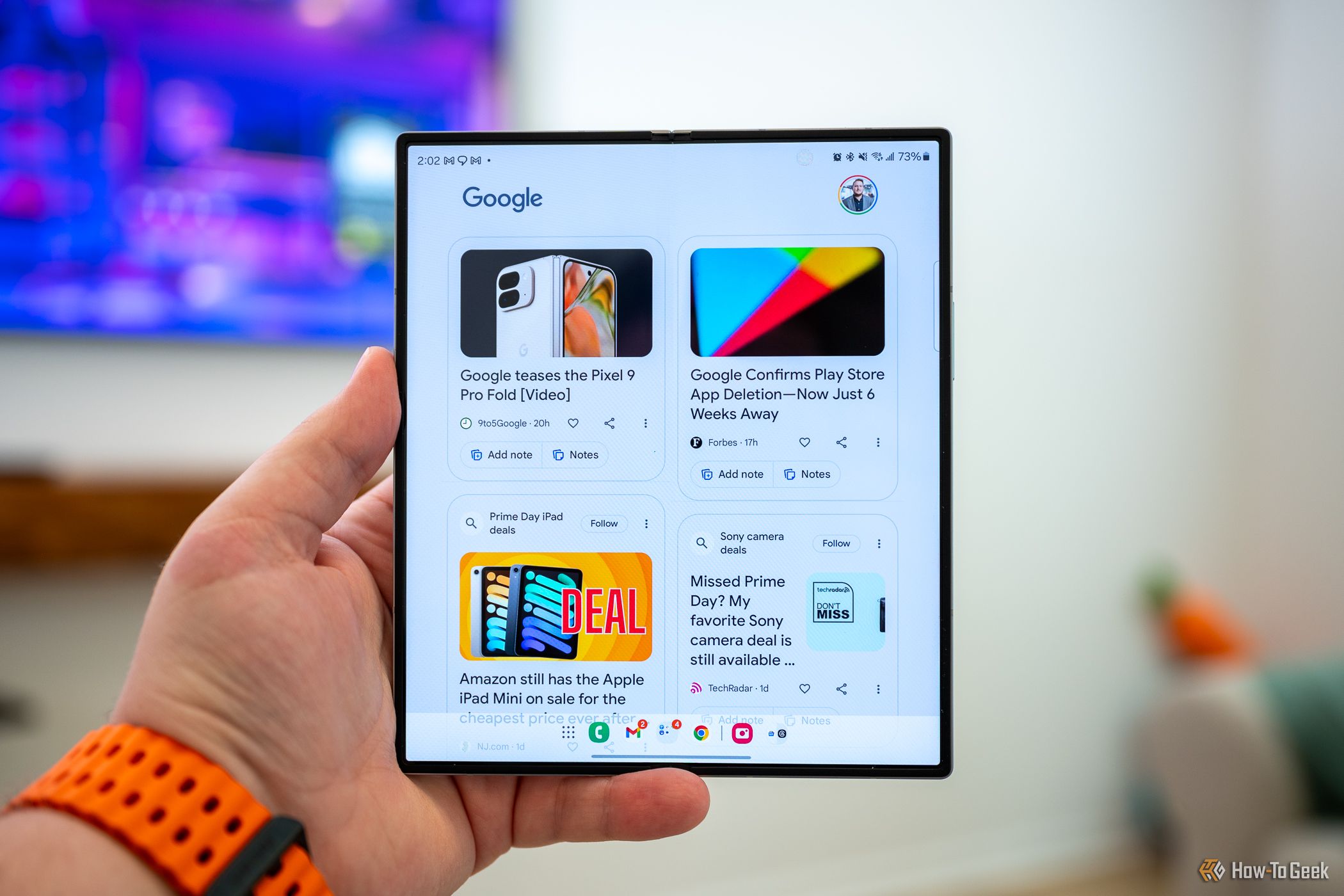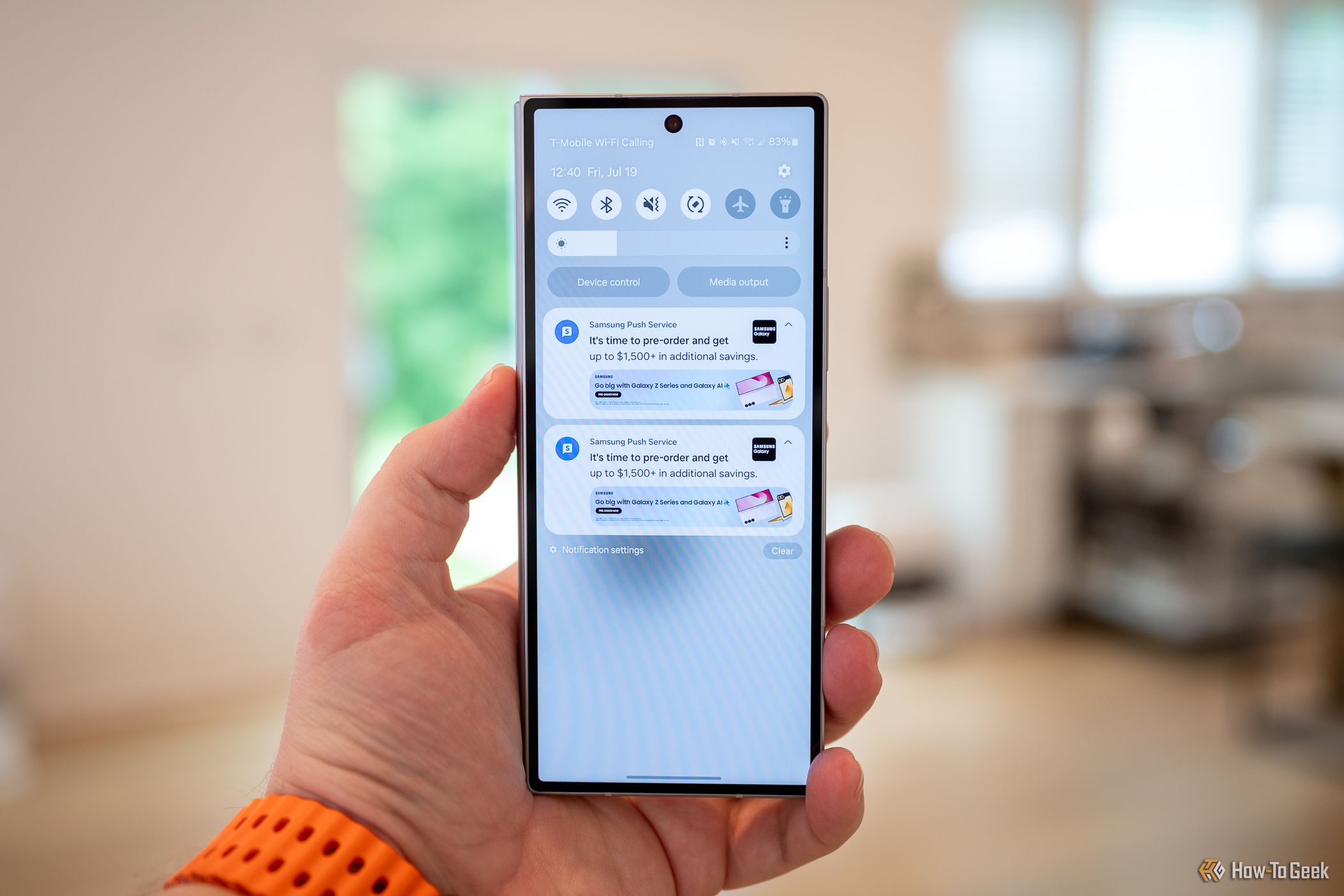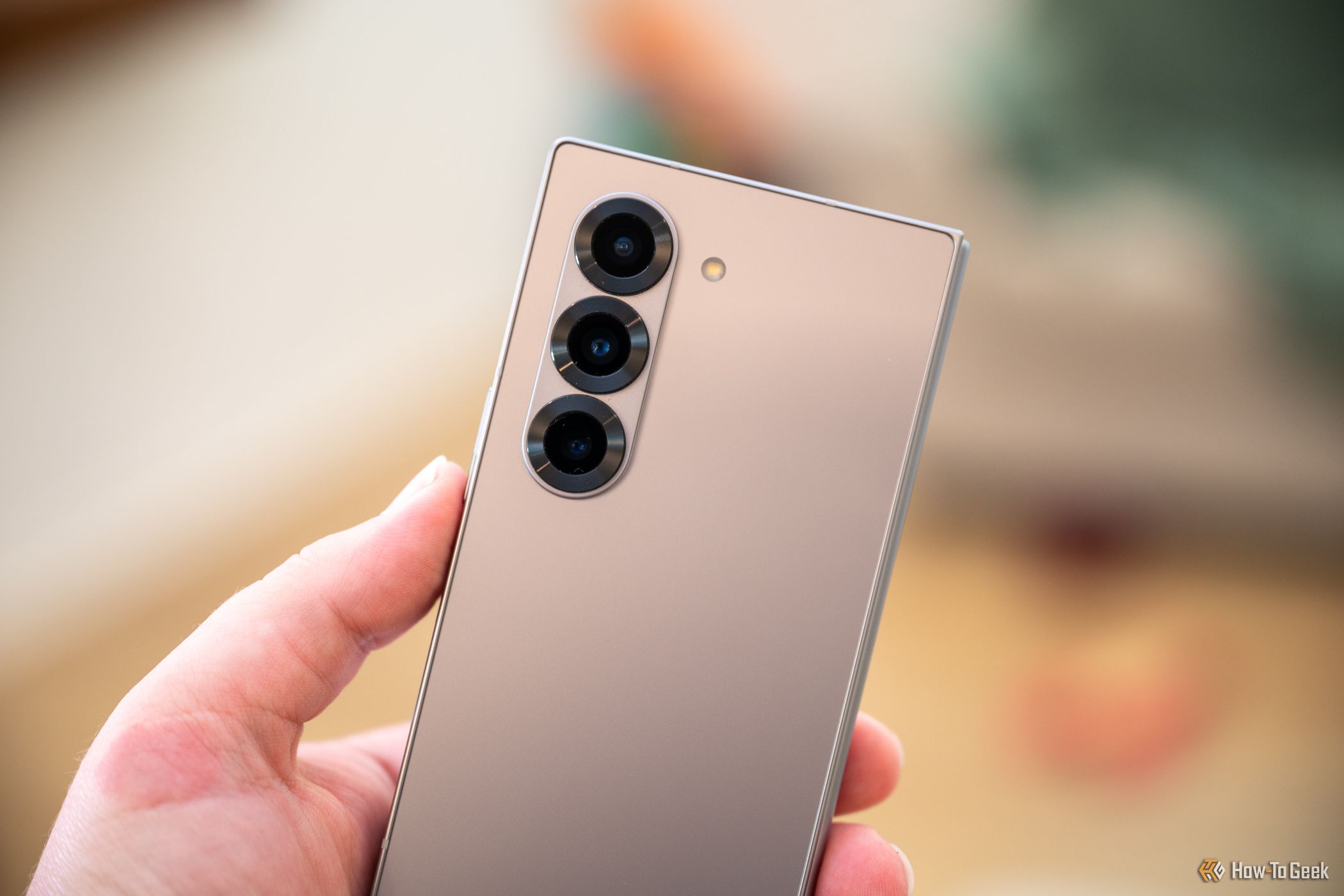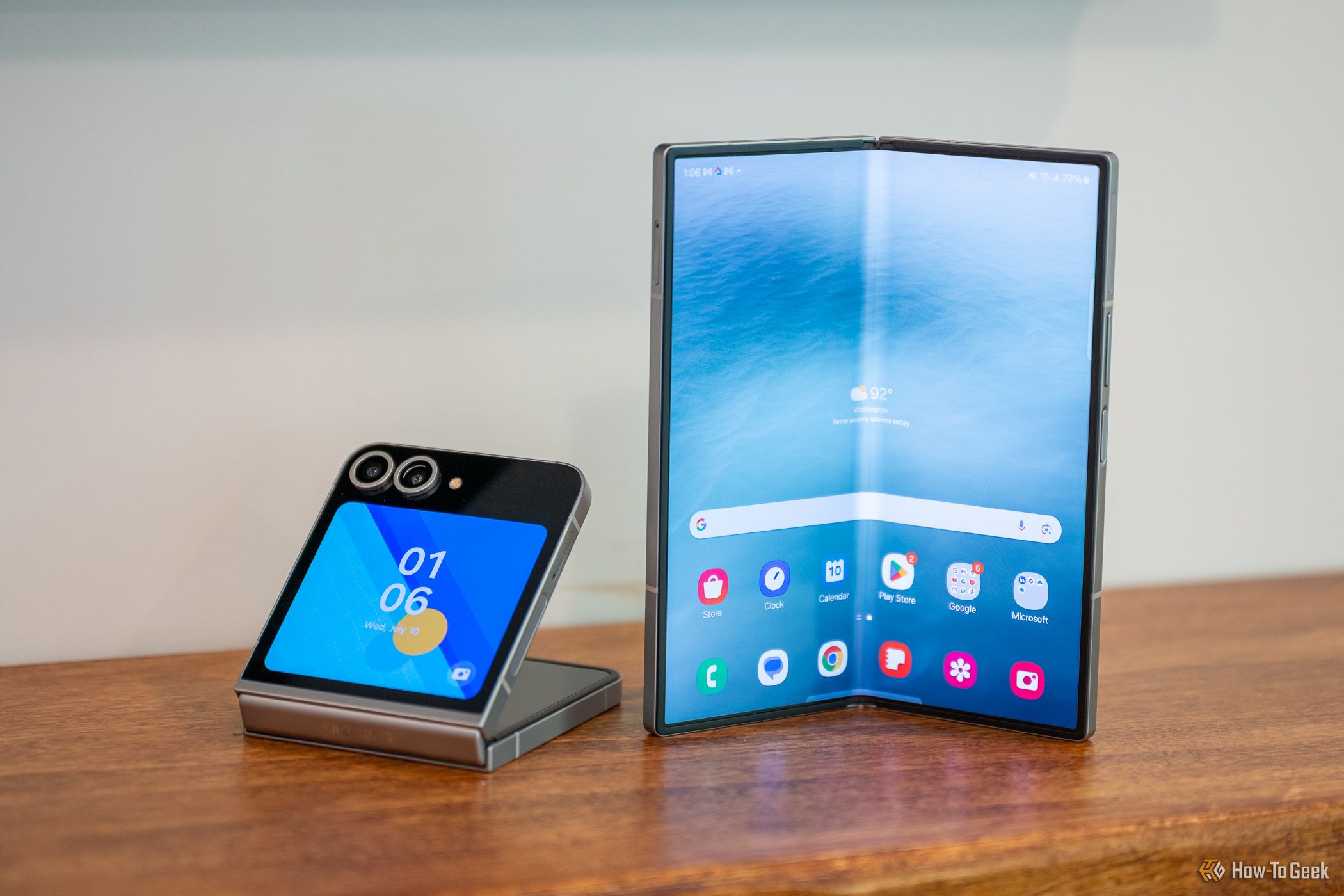Key Takeaways
- Refined screen sizes, decreased weight, and polished software make the Samsung Galaxy Z Fold 6 a solid choice.
- Despite some downsides, like app optimization and no Qi2 magnetic charging, the Galaxy Z Fold 6 is still worth the hefty $1900 price tag.
- Samsung’s improvements in hardware design and software AI features make the Galaxy Z Fold 6 a compelling foldable phone option.
In the U.S., Samsung has led the foldable market. Now that competition is increasing, the company is under pressure to innovate. Unfortunately, the Galaxy Z Fold 6 isn’t groundbreaking, but with this year’s improvements, I have no problem recommending this phone.
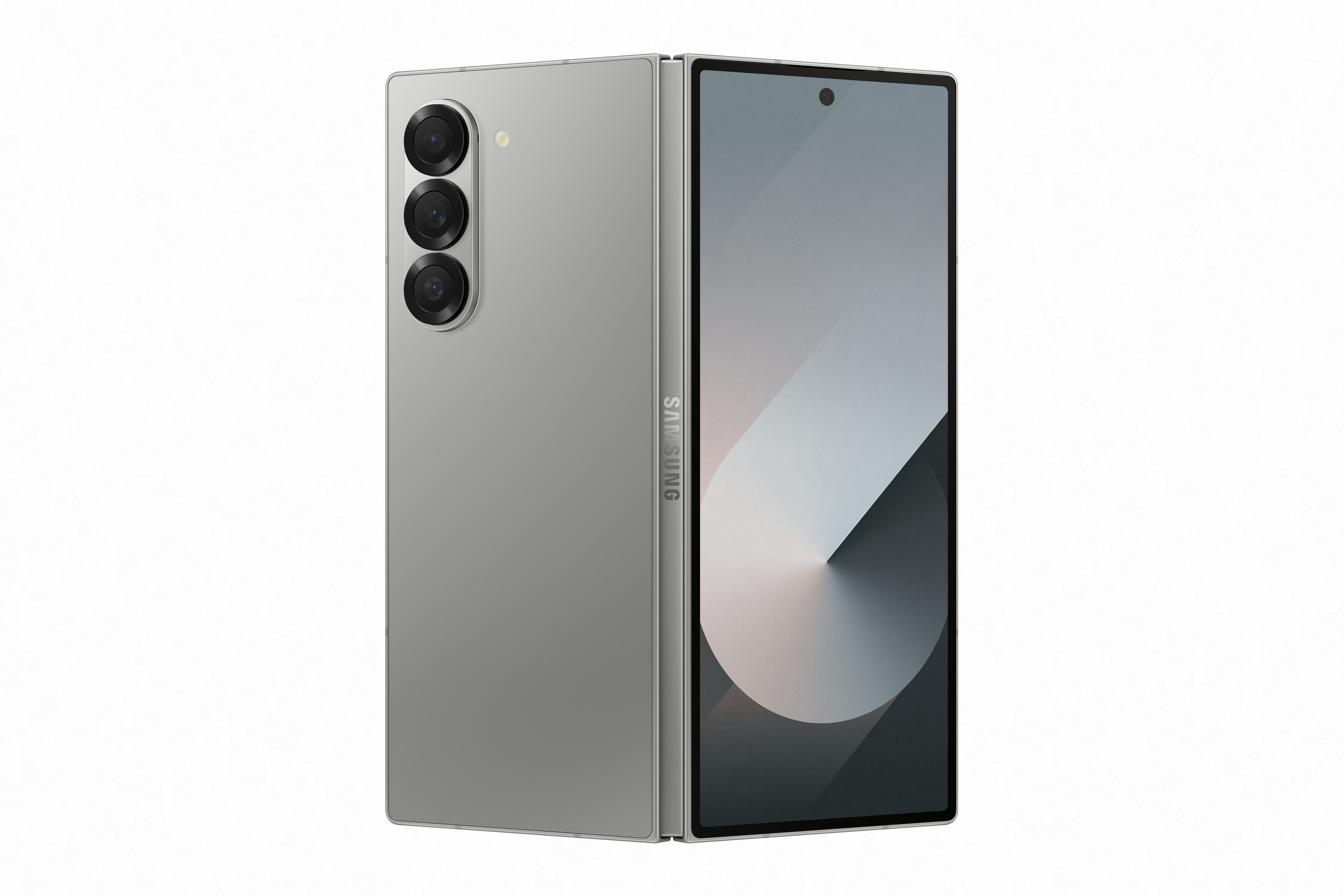
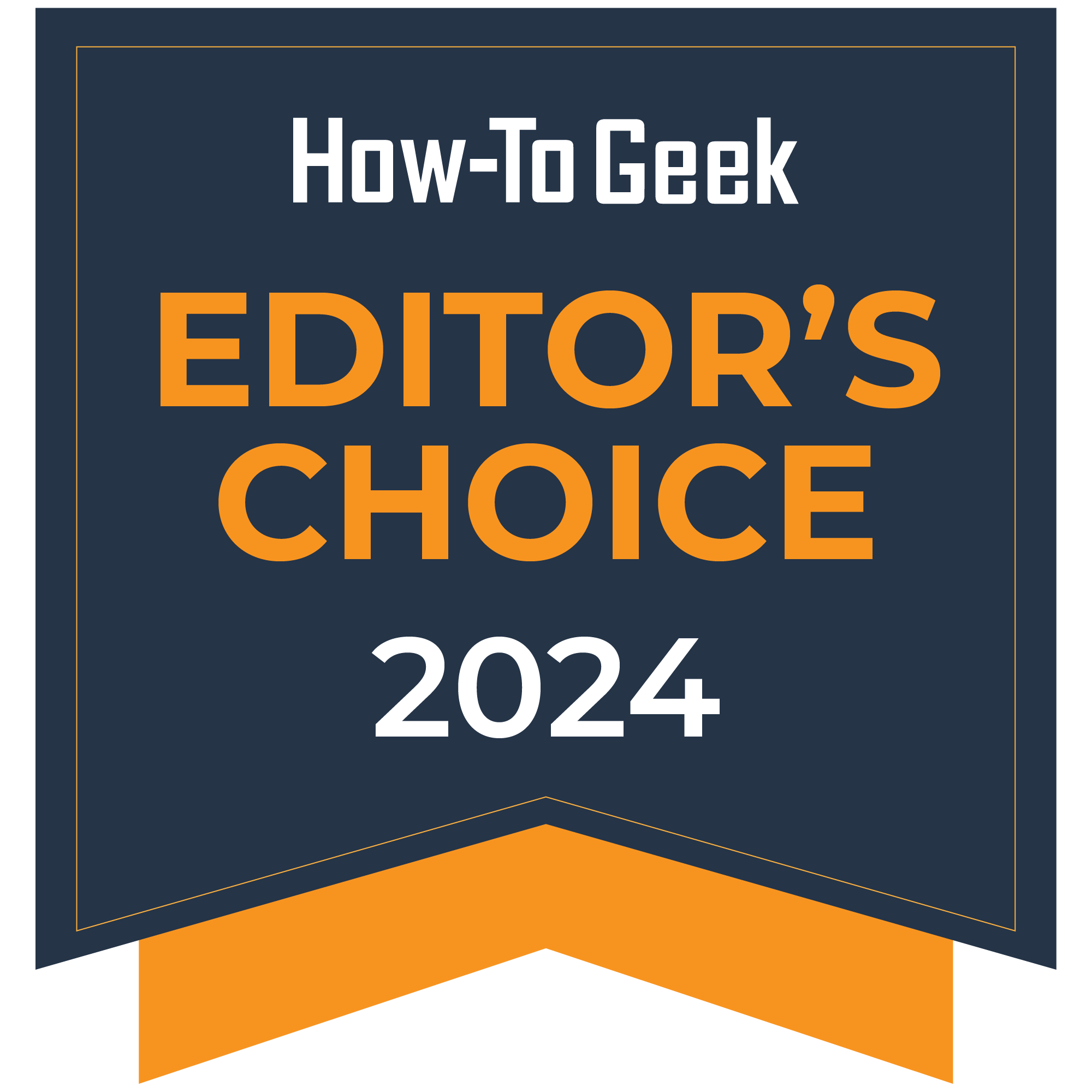
Samsung Galaxy Z Fold 6
The Samsung Galaxy Z Fold 6 is a foldable smartphone that combines the functionality of a tablet with the convenience of a phone. It features a large, flexible internal screen that automatically picks up where you left off on the cover display. It is the definition of mobile productivity and entertainment with advanced multitasking capabilities, powerful performance, and enhanced Galaxy AI capabilities.
- Refined and improved screen sizes
- Decreased weight
- Polished software experience
- Not all apps (but most) are optimized for the internal display
- No Qi2 charging
- Almost twice the cost of a traditional Android smartphone
Price and Availability
The Galaxy Z Fold 6 costs $100 more than 2023’s Fold 5, retailing for $1,899.99 with 256GB of built-in storage. The 512GB and 1TB models cost $2,019.00 and $2,259.99, respectively. All three spec tiers have 12GB of RAM and the Qualcomm Snapdragon Gen 3 for Galaxy.
The foldable can be purchased from almost every carrier and third-party retailer and is available in Pink, Navy, and Silver Shadow (the color I tested). If you buy directly from Samsung, you can also choose from Crafted Black (with a textured back) and White.
Hardware Improvements You’ll Feel
Even if you stared at the Z Fold 6 and the Fold 5, I highly doubt you could figure out which phone is which. Samsung nailed down its design last year, finally making it so that the handset folded flat. But the moment you pick up the Fold 6, you’ll feel a difference.
The most noticeable difference out of the box is the weight. The Fold 6 comes in at 239g, which shaves off 14g compared to last year’s model. That’s only 7g heavier than the Galaxy S24 Ultra. We’re finally at a point where Samsung’s largest foldable doesn’t feel like a brick or two phones taped together in your pocket.
However, slightly adjusted dimensions and screen sizes are the most welcome changes. When folded, the phone is 1mm wider and 1.3mm thinner than the Fold 5. That doesn’t sound like much, but it makes the Z Fold 6’s cover display feel that much closer to a “traditional” smartphone. I found myself using it much more than with previous generations, only unfolding the device when I wanted to multitask or use a tablet-sized screen.
Those changes also affect the inside display. When unfolded, the Fold 6 is 1.4mm shorter, 2.7mm wider, and .5mm thinner than last year’s handset. I have always preferred shorter and wider designs after using the Google Pixel Fold and OnePlus Open. It’s easier to use the cover display, reach the top of the screen, and offer a better widescreen experience. I’m happy to see Samsung move in this direction.
The cherry on top is the frame’s flat edge, found all the way around the phone. It makes the Fold 6 feel slimmer and more premium. Plus, the edges and back glass are matte, which is always preferred over polished metal. The corners are a bit sharper, which means it’s not quite as comfortable to hold, but I forgot about this a day into using the foldable.
I’ve gotten pretty accustomed to large camera bumps, but they cause an annoyance on the Fold 6 that I didn’t completely notice until I read a piece by my colleague Will Sattelberg on Android Police. As he points out, having the three cameras lined up in the top-left corner of the device causes the phone to be extremely wobbly when placed on a table. It’s so unstable that it’s uncomfortable to interact with the foldable. I almost always pick up the device when checking notifications.
Also, the Z Fold 6 is still incredibly slippery despite the matte back glass. I once had it slide off my bedside table. I don’t know if the camera bumps worsened the situation, but I’d feel better if the device wasn’t lying awkwardly every time I sat it down.
The AMOLED displays themselves are as great as ever. They both have a variable 120Hz refresh rate and a 2600nits peak brightness, making all content look good whether you’re inside or outside.
The same goes for battery life. The Z Fold 6 retains the 4,400mAh battery found in the Fold 5, but Samsung claims several extra hours of juice while watching videos or listening to audio. In my real-world testing, it was difficult to nail down an average screen-on battery life because they varied greatly depending on whether I used the cover or the inside screen for most of the day.
I could always make it through to the end of the day, but some nights, I ended with under 15% left. That normally equated to five and a half to six and a half hours of screen-on time.
One UI Is Perfected for Foldable (and AI)
Samsung, which adds its own touch and flair to Android, offers the Fold 6 a good mix of easy-to-use multitasking features while retaining heavier customization features in the Settings menu for those who like to tinker.
Like desktop operating systems, the Z Fold 6 has a taskbar that hosts shortcuts to your most important apps and the app drawer. Once you have an app open, you can use the taskbar to drag and drop a second (or a third or a fourth) app in another section of the internal screen. Then, you can tap on the indicators between or above each app to adjust sizing, swap out apps, and more.
The experience is incredibly intuitive after playing with the phone for several hours. Having both my password manager and two-factor authentication apps open alongside others while setting up the phone is incredibly powerful.
Thankfully, roughly 95% of my apps scaled properly during my time with the foldable, whether I was using the more narrow cover display or the wide, tablet-sized inside screen.
For those that don’t play nice, you can go into the Z Fold 6’s Settings menu and set the aspect ratio specifically for that app. So, instead of launching in full screen, you can choose between 16:9 and 4:3. It’s not a perfect solution, but it’s a good stop-gap until developers update their apps.
Samsung went all-in on “Galaxy AI” in January 2024 with the launch of the S24 Series. This included the launch of Circle to Search with Google, Interpreter mode, and more. Those same features, plus some extras, made their way to the Fold 6.
Two of the flagship AI features are Drawing Assist and Photo Assist. The first provides you with a blank canvas to sketch on. From there, you can choose an art style and generate several versions of your drawing. This feature doesn’t take too many creative licenses and mostly sticks to the shape you drew.
Photo Assist takes a different approach. Found in the Gallery app, you take any photo and draw what you’d like added to the scene, such as a tree, bird, dog, or butterfly. Tap the Generate button and wait a hot second. Before you know it, the Z Fold 6 offers you several options to choose from. I’ve included a selection of samples above.
While I’m still in awe that Samsung was able to understand my truly awful drawings and correctly insert the object or animal I drew, none of these look exactly natural. Others, like The Verge, have had better results. Allison Johnson drew a bee next to an out-of-focus flower, and her Z Fold 6 inserted an equally out-of-focus bee. It looks surprisingly realistic, and I would have never guessed it was AI-generated.
Speaking of which, Samsung automatically adds an “AI-generated content” watermark to the bottom-left corner of every one of these images. The issue is that this watermark is almost transparent and can easily be cropped out of the frame. While I don’t think anyone will be fooled by my images, it won’t be long before this tech is perfected.
As both of these new AI features require you to draw, they would benefit from an S Pen. Thankfully, the inside screen supports Samsung’s stylus, but one does not come with the $1,900 phone like it does with the S24 Ultra. Instead, you’ll have to purchase a $130 case or the S Pen by itself. While I understand the choice not to include a built-in slot for space-saving and battery-related reasons, throwing one in the box would have helped promote the new AI features.
Stop Advertising on $2,000 Phones
Samsung has been known to push notifications to advertise upcoming announcements. I’m sad to report that it’s still happening on the Fold 6. More than once, I felt the phone buzz, only to find an ad prompting me to pre-order the Z Flip 6 or Z Fold 6. Beyond the irony that this message was being sent to a Fold 6, it was common for this notification to be pushed twice in the span of a couple of minutes.
It shouldn’t need to be said, but Samsung has to stop dropping advertisements on its customers. I can forgive the company if it places a banner ad in its apps, but to push a notification multiple times is ridiculous.
The Cameras Have Gone Mostly Untouched
The Samsung Galaxy Z Fold 6 has five cameras: a 10MP selfie camera on the cover display, a new 12MP ultra-wide, 50MP wide, 10MP 3x telephoto, and a 4MP under-display camera (more on that below).
I’ve included image samples taken outside on a sunny day, inside a store, using Portrait mode with 2x zoom, night shots, and several selfies. Overall, the photos all came out pretty sharp, with plenty of contrast. I don’t think they’re equal to what you can capture using Samsung’s flagship smartphone (or even Google’s Pixel 8a), but they’re more than adequate.
The main difference between the new 12MP ultrawide and last year’s is that it is better optimized for shooting in low light. Beyond that, the image quality is basically on par with what you might have experienced with the Fold 5.
In basically every instance, I preferred the look of selfies captured using the rear-facing cameras. They’re more natural-looking, the color is more accurate, and the scene doesn’t look as compressed.
Samsung makes it pretty easy for you to swap between cameras, but there’s a taking-photos-with-a-13in-iPad-type of awkwardness with an unfolded handset. Plus, you have to grip the more fragile inside screen, which is a bit nerve-wracking.
It’s Time to Drop the Under-Display Camera
The promise of under-display cameras was that you would maintain a selfie camera while not losing screen real estate. Unfortunately, despite Samsung using this tech for multiple years, the image quality is still terrible.
As you can see from the first two photos above, pixels cover about half of the camera when you’re interacting with the phone. But when you launch the camera, they disappear. When you take a selfie, Samsung processes the image and tries to fill in missing details. Despite this work, you still have a soft and out-of-focus-looking photo.
It’s 2024. At this point, most consumers are used to and fine with hole punches, notches, and Dynamic Islands. I never found myself actually needing to use the inside display’s selfie camera, but if I had, I would have tried to find a way to use any of the foldable’s other sensors. The under-display camera is potato quality and should be replaced or removed completely.
The Galaxy Z Flip 6 Is Also Worth Considering
The Z Flip 6 will launch alongside the Z Fold 6. Despite it also including a foldable display with ultra-thin glass, it targets a different audience. Instead of someone who wants a large, 2-in-1 device, the Flip 6 is all about minimalism and convenience. It’s a small and pocketable package with a cover display for quickly checking notifications and a standard phone-sized internal screen for everything else.
Unlike the Fold, the Flip has fewer noticeable improvements but’s also slightly thinner and lighter. The most notable year-over-year change is the improved camera sensors. It gained the 50MP sensor found on the Galaxy S24 series, allowing you to capture sharper images. Camera quality has always been poor on the Flip series, so this is a welcome change.
How-To Geek will have a review of the Z Flip 6 published shortly, but in the meantime, you can read my thoughts after a brief hands-on.
Should You Buy the Samsung Galaxy Z Fold 6?
I’ve really enjoyed testing the Galaxy Z Fold 6 over the past week and a half. Its ability to function as both a phone and a tablet has been great. I can comfortably use the cover display as a regular phone and then easily multitask with two to four apps at once on the inside screen, something I can’t do with my primary smartphone (an iPhone). The foldable finally feels like a finished product that shouldn’t be reserved for early adopters.
If you have a Z Fold 5 or the OnePlus Open, there is basically no reason to rush out and spend $1,900 on the Galaxy Z Fold 6. The improved dimensions, more rugged hinge, and IP48 rating aren’t worth replacing last year’s handsets. But if you’re considering a foldable phone for the first time, the Z Fold 6 is a fantastic starting point.
However, you have to consider that Google will launch the Pixel 9 Pro Fold in less than a month. Last year’s model was far from a success, with a hinge that didn’t unfold flat, but I have high hopes for the second generation. If camera performance is a high priority for you, I’d consider holding off until we see what comes out of the Googleplex.


Samsung Galaxy Z Fold 6
The Samsung Galaxy Z Fold 6 is a foldable smartphone that combines the functionality of a tablet with the convenience of a phone. It features a large, flexible internal screen that automatically picks up where you left off on the cover display. It is the definition of mobile productivity and entertainment with advanced multitasking capabilities, powerful performance, and enhanced Galaxy AI capabilities.


